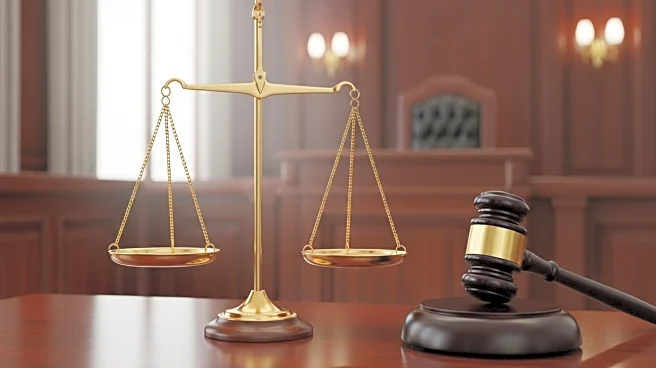What's Happening?
Former FBI Director James Comey has entered a plea of not guilty to charges brought against him, including one count of making false statements and one count of obstruction of a congressional proceeding. The charges stem from allegations that Comey provided misleading information during a congressional inquiry. This development marks a significant moment in the ongoing scrutiny of Comey's actions during his tenure as FBI Director, particularly concerning his handling of investigations that have been politically sensitive.
Why It's Important?
The charges against James Comey are significant as they highlight ongoing tensions and controversies surrounding the actions of high-ranking officials in the U.S. government. The case could have implications for public trust in federal institutions, particularly the FBI, and may influence perceptions of accountability and transparency within government operations. If found guilty, Comey could face legal consequences that might impact his legacy and the broader discourse on governmental integrity.
What's Next?
The legal proceedings will continue as Comey prepares to defend himself against the charges. The case is likely to attract significant media attention and could prompt reactions from political leaders and commentators. Observers will be watching closely to see how the trial unfolds and whether it will lead to further investigations or reforms within the FBI or other governmental bodies.
Beyond the Headlines
This case may also spark discussions about the ethical responsibilities of government officials and the importance of truthful communication in congressional proceedings. It could lead to debates on the balance between political influence and judicial processes, as well as the role of oversight in maintaining governmental accountability.










